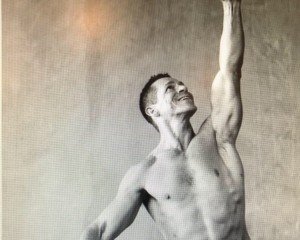“There has been a marketing trend propagated to convince people that everyday chores like cleaning a house is exercise,” says Steve Cotter, Director, International Kettlebell and Fitness Federation (IKFF).
Cotter continues, “It’s an attractive concept because, while not fun, housework is not fear-inducing the way doing pushups or squats might be.
Usually these types of proclamations are combined with some pill or otherwise ‘quick-fix’ solution when the truth is, only consisted hard work over time will accomplish the goal of being fit.
“Housework is low intensity, meaning there is very little caloric output. So if that is the only ‘exercise’ a person does, without any changes to eating and activity habits, there will be no body-toning qualities at all!
“Nothing worth accomplishing is easy; there has to be effort, and the sooner people can be honest about that, the better able they can achieve something real, positive and lasting.”
I’ve noticed that those who insist that housework counts as exercise never have hard, fit-looking physiques like the woman in the photo below.
You simply cannot look like the women below and NOT be physically fit.

Freepik.com, yanzlya
As a fitness expert, I’ll admit that there are people who don’t look like this but are very physically fit from a cardiovascular standpoint: e.g., marathon runners and avid hikers.
But the marathon runner does not have overall fitness. A marathon runner wouldn’t last long shoveling snow or helping a friend move heavy furniture.
Overall fitness encompasses cardiovascular health plus musculoskeletal health (strong dense bones, tough joints and strong muscles, muscle stamina and flexibility).
Body composition is also a crucial factor. A high ratio of fat to muscle is not healthy. Looks are very telling.
You need not be “ripped” to be in top physical condition, either. But there are certainly tell-tale signs of fitness vs. being in poor physical condition.

Shutterstock/RomarioIen
So if housework counts as good exercise, or a good way to get fit, then it stands to reason that people who clean homes for a living, or who do housekeeping duties in buildings like hospitals, would have outstanding physiques—or at least—bodies that appeared physically fit.
I have seen many housekeeping personnel over the years in various settings (e.g., hotels, hospitals, schools, business buildings). Few ever looked like they might work out.
Most appeared quite out of shape. This doesn’t necessarily mean overweight, though the majority of female cleaning crew I’ve ever seen over the years was overweight, often clinically obese.
But the thinner ones appeared “skinny fat.” No muscle tone. Flabby soft arms, weak-looking upper bodies, sagging breasts, excess fat in the midsection but scrawny looking limbs.
They do housework for a living yet look this way. How do the “housework counts as exercise” proponents explain this?
There is a powerful correlation between physical fitness and appearance.
But to be fair, I’ll point out that the 250 pound, 5’6” woman who can hoist a 200 pound barbell over her head is still carrying dangerous levels of fat in her body.
She’s at risk for type II diabetes, high cholesterol and heart disease down the road.
But one need not be able to perform extraordinary feats of strength to be in tip-top physical condition.
A 300 pound, 5’10” man who can bench press 400 pounds is not what I’d consider physically fit—a man like this would flounder at running, step classes, hill dashing—it’s a sure bet he’d be winded after trotting up just a few flights of stairs. I’d hate to see how much fat surrounds his heart.
However, again, lifting super enormous amounts of weight is not the criterion for tip-top fitness.
So what is? There’s a number of ways to predict all-cause mortality and mortality in the near future.
One of them is the sit-and-stand test: Can you stand up, from the floor, without your knees or hands touching the floor in the process?
Another is heart rate recovery. And yet another is the ability to do pushups. There are more.
People who can perform these tasks or have great heart rate recoveries tend to have a particular physical appearance. They tend NOT to have a particular physical appearance.
Housework won’t get you passing the sit-and-stand test. Housework will not grant you a good heart rate recovery. If all you do is housework for “exercise,” you’re fooling yourself big-time.
“If a custodian is very muscular and fit, it is because they are doing some other more vigorous activities outside of the cleaning work itself,” says Cotter.
 For 30+ years Steve Cotter has promoted body-mind fitness around the world through martial arts, qigong, mobility, flexibility and kettlebell training.
For 30+ years Steve Cotter has promoted body-mind fitness around the world through martial arts, qigong, mobility, flexibility and kettlebell training.
 Lorra Garrick has been covering medical, fitness and cybersecurity topics for many years, having written thousands of articles for print magazines and websites, including as a ghostwriter. She’s also a former ACE-certified personal trainer.
Lorra Garrick has been covering medical, fitness and cybersecurity topics for many years, having written thousands of articles for print magazines and websites, including as a ghostwriter. She’s also a former ACE-certified personal trainer.
.












